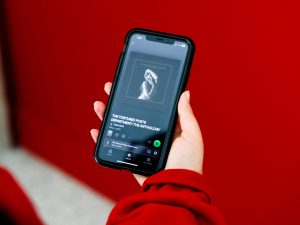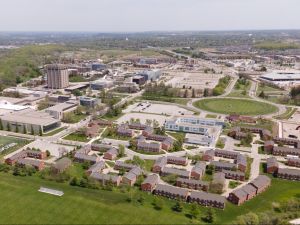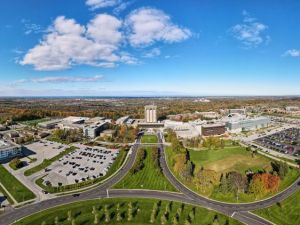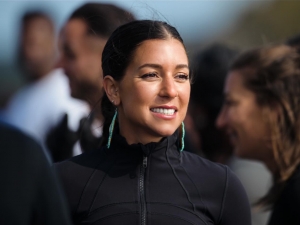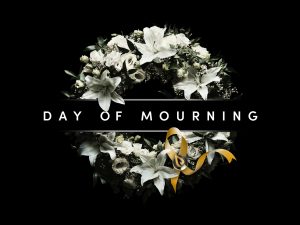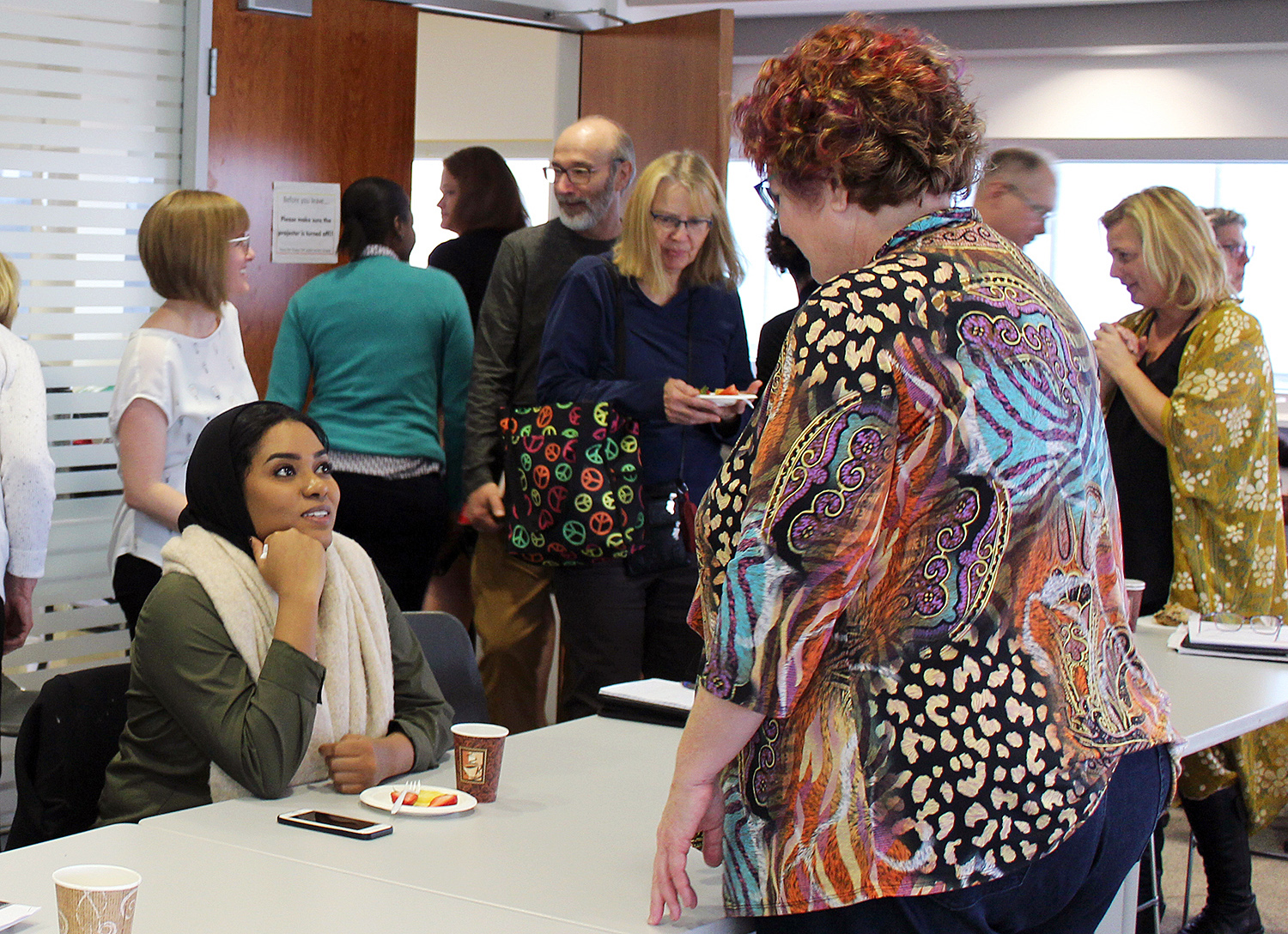 Zainab Awad from the Niagara Folk Arts Multicultural Centre and Lynn McCleary, Associate Professor of Nursing speak during the Making a Difference In Niagara event on Nov. 8.
Zainab Awad from the Niagara Folk Arts Multicultural Centre and Lynn McCleary, Associate Professor of Nursing speak during the Making a Difference In Niagara event on Nov. 8.Instead of a love connection, a recent ‘match-making’ event aimed to create a bond between Brock researchers and community organizations.
The Nov. 8 session connected local groups with Brock academics whose expertise complements their specific needs in an effort to spark new community-University research projects.
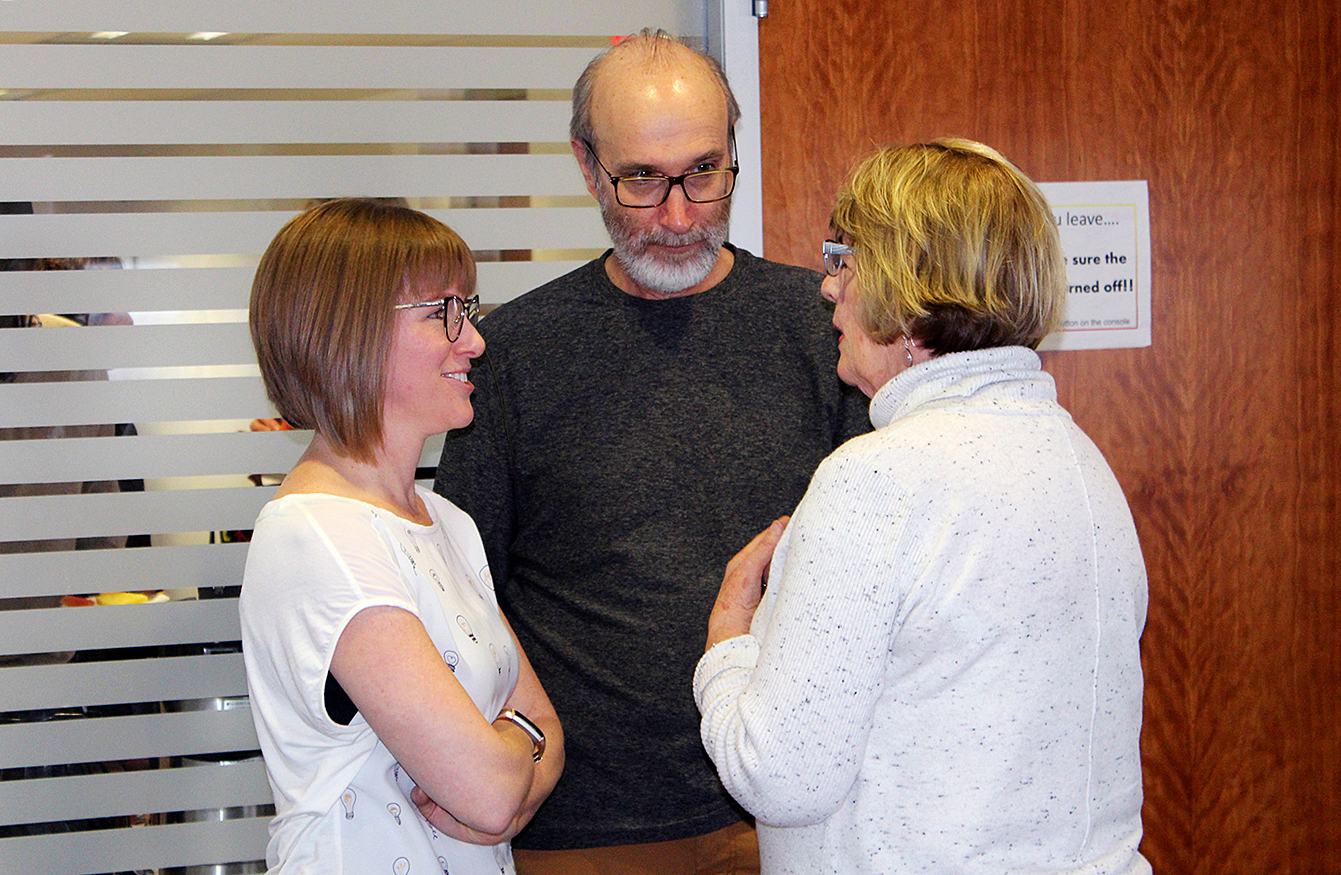
Julie Gregory, project facilitator with SJRI, and David Butz, SJRI affiliated professor of Geography, speak with Susan Venditti from Start Me Up Niagara.
Making a Difference in Niagara: University-Community Research Collaborations was hosted on campus by Brock’s Social Justice Research Institute (SJRI).
Brock has a history of successful and meaningful engagement with the Niagara community, said Rebecca Raby, Professor of Child and Youth Studies and Director of the SJRI. The recent event was intended to help grow that engagement, creating mutually beneficial partnerships that better Niagara as a whole.
“Making a difference is at the heart of Brock’s mission statement,” said Tim Kenyon, Brock’s Vice-President, Research, during the event’s opening remarks. That “difference,” he said, can happen in many ways, such as conducting new research, engaging in new ways of looking at problems, or informing new policies.
“Research exists to make a difference,” he said. “Nobody gets into research because we hope nobody is ever going to read it.”
University-community partnerships can help answer questions researchers often ask, he said, such as “How can I make a difference? How can I encourage uptake of my research? How can I make my research accessible to the people who need it?”
Four community organizations attended Making a Difference in Niagara, presenting their research needs directly to Brock faculty and students who are concerned about social justice issues.
For Jeff Sinclair, who chairs Niagara Region Homelessness Services’ program advisory committee, “idea generation” was considered a major benefit of working with the University.
“Many people in our organization have been doing the work for years,” he said. “Students bring a fresh perspective.”
Tools of Empowerment for Success (TOES) Niagara Executive Director Nyarayi Kapisavanhu, on the other hand, hoped Brock researchers may help evaluate the role of education in the empowerment of women leaders. The organization works to identify and interpret the leadership qualities of marginalized women leaders in the region.
The clients of Start Me Up Niagara deal with issues of marginalization, isolation and loneliness, said Executive Director Susan Venditti. The organization, which she described as a “Petri dish for research,” is interested in research that conceptualizes its model of care.
Melenie Neamtz, a program co-ordinator at the Niagara Folk Arts Multicultural Centre, focused her pitch on the organization’s Mental Health for Newcomers Program.
“We need quantitative and qualitative data,” she said. “We know that stigma is a major barrier (to accessing services) among the newcomer population, many of whom come from countries where mental health is not something people talk about, even within their own homes.”
Neamtz experienced the benefit of Brock partnerships after working with the University’s Nursing students on the recent Road to Resilience: A Multicultural Art Exhibition. The project has local artists and art students volunteering to create representations of newcomers’ stories of lived experience. Stories and art pieces will be displayed at The Robby, 85 Church St. in St. Catharines, on Tuesday, Nov. 20.
This time around, Neamtz requested help with data collection and analysis, expertise around data management and privacy, and capacity to share and mobilize the data that is collected.
All four organizations pointed to the need for local data, especially when it comes to applying or reporting to external funding organizations.
“We need Niagara-specific information, not just information from Toronto or even Hamilton,” Neamtz said. “We know Niagara has its own problems, but we need to be able to point to the proof.”
The benefits of University-community research projects are not just financial. All presenters noted how research can help them better serve their client base.
“We understand our participants,” said Venditti, “but we need to evaluate what we are doing so we know what’s working. We need quantitative data.”
Sociology Professor and SJRI affiliate Nancy Cook wanted to be sure the community organizations understood what to expect from working with the University’s SJRI. “We undertake our research with a social justice lens,” she said. “We are driven by our passions, values, commitment to progressive change.”
The event may represent the early steps in several potential new collaborations. Faculty and student researchers, having heard the organizations’ pitches, were invited to indicate on cards which organizations they were interested in collaborating with. The team at SJRI collected the cards so they can match researchers with community groups and make the necessary introductions. Faculty and students expressed interest in all the organizations.
Any interested faculty or students who could not make it to the event are welcome to contact Julie Gregory at jgregory@brocku.ca for more information.
Faculty affiliated with the SJRI are eligible for community engagement and research seed grants. Students wanting to get involved with community research should contact the SJRI or an affiliated faculty member.
Brock’s Social Justice Research Institute aims to nourish the construction and mobilization of knowledge that addresses contemporary social problems, opens pathways to progressive social change, and ultimately, helps to build a more just society in and beyond the Niagara region. For more information, visit the SJRI website.
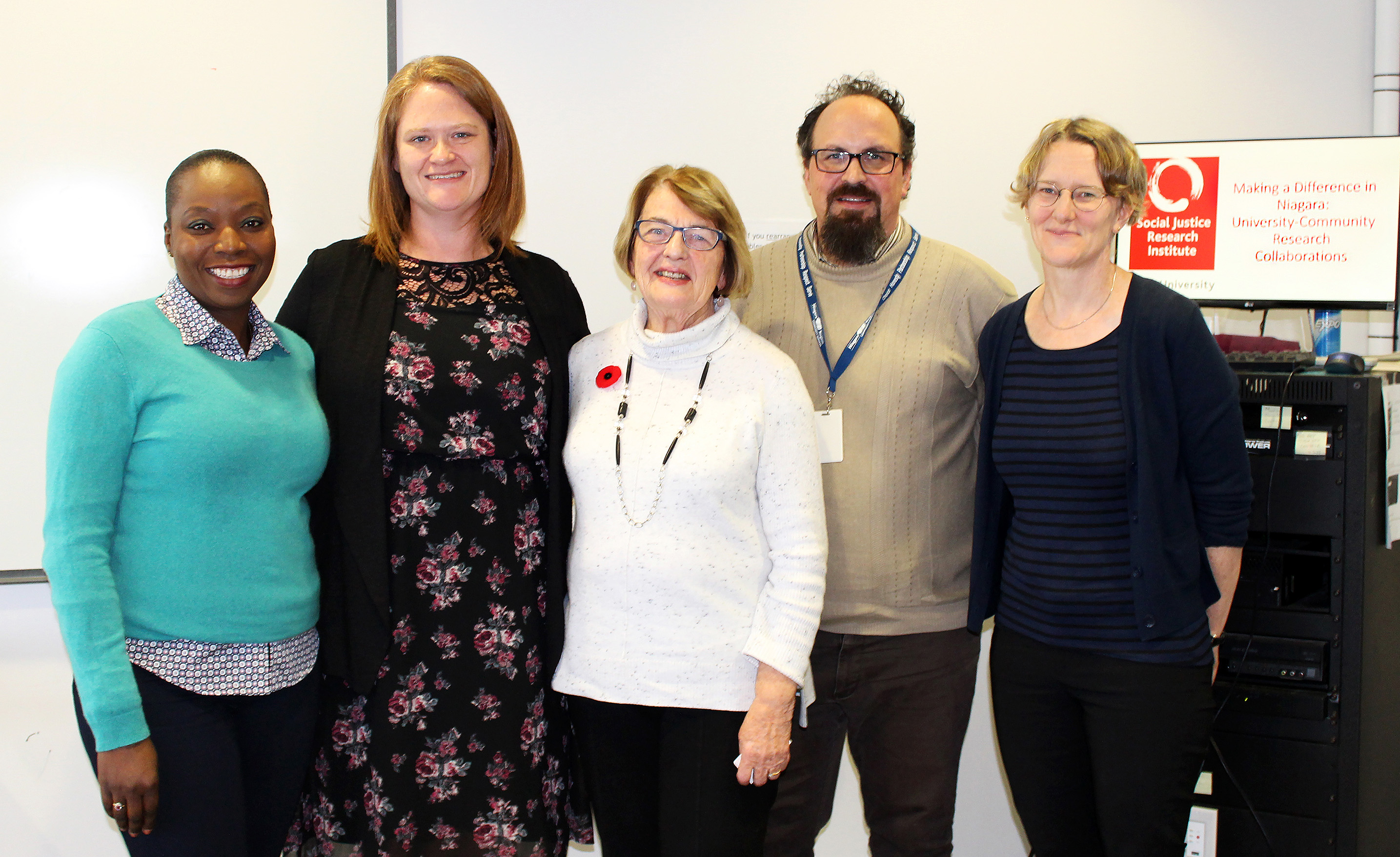
Rebecca Raby, Director of Brock’s Social Justice Research Institute (far right) welcomed representatives from four community organizations: Nyarayi Kapisavanhu from TOES Niagara, Melenie Neamtz from Niagara Folk Arts Multicultural Centre, Susan Venditti from Start Me Up Niagara, and Jeff Sinclair from Niagara Region Homelessness Services at the Making a Difference in Niagara event Nov. 8.
